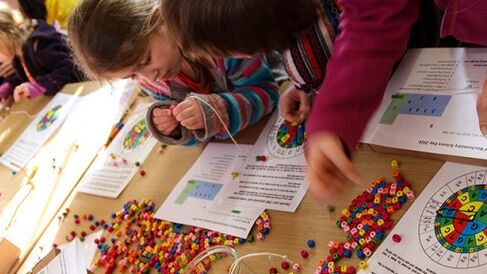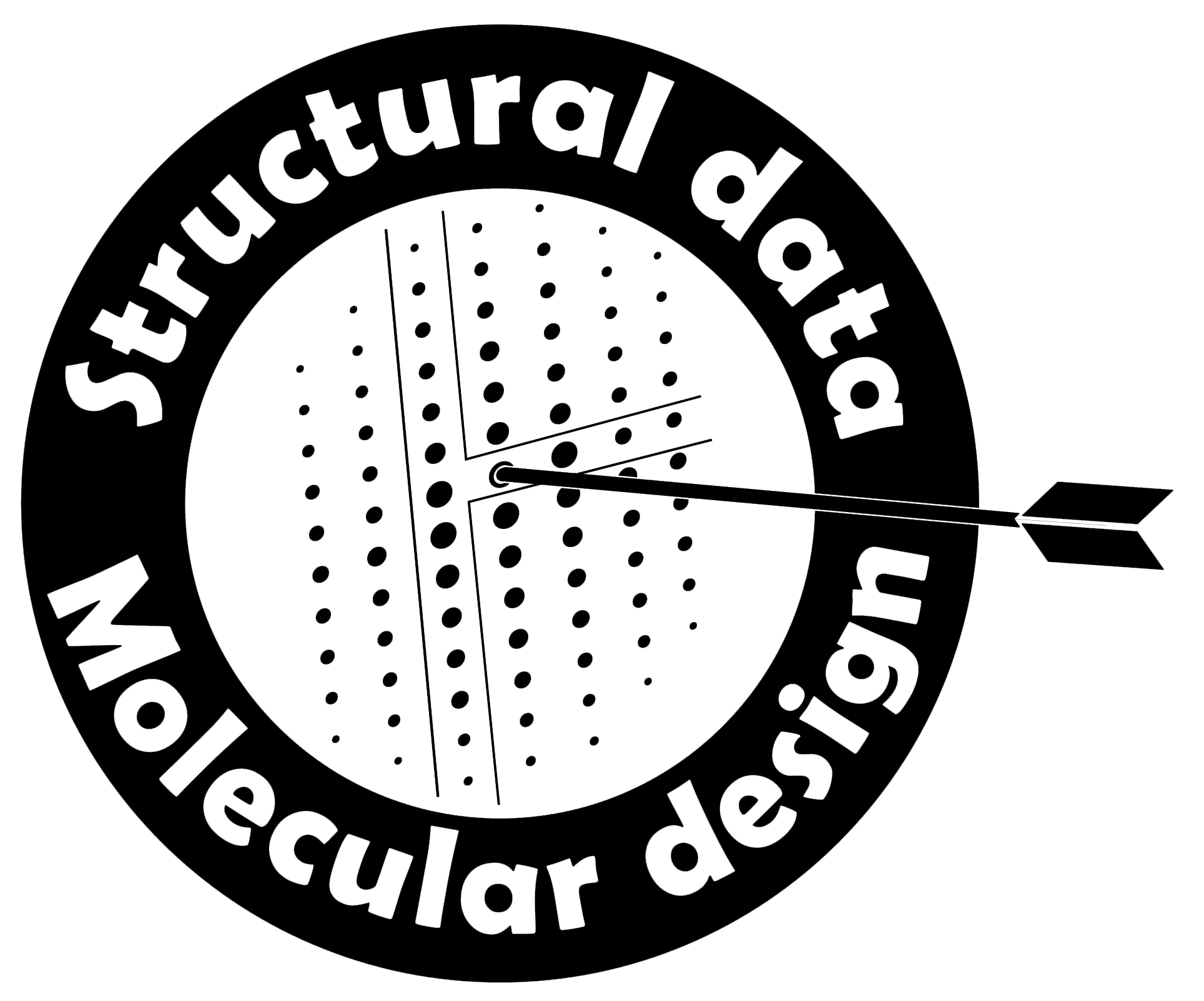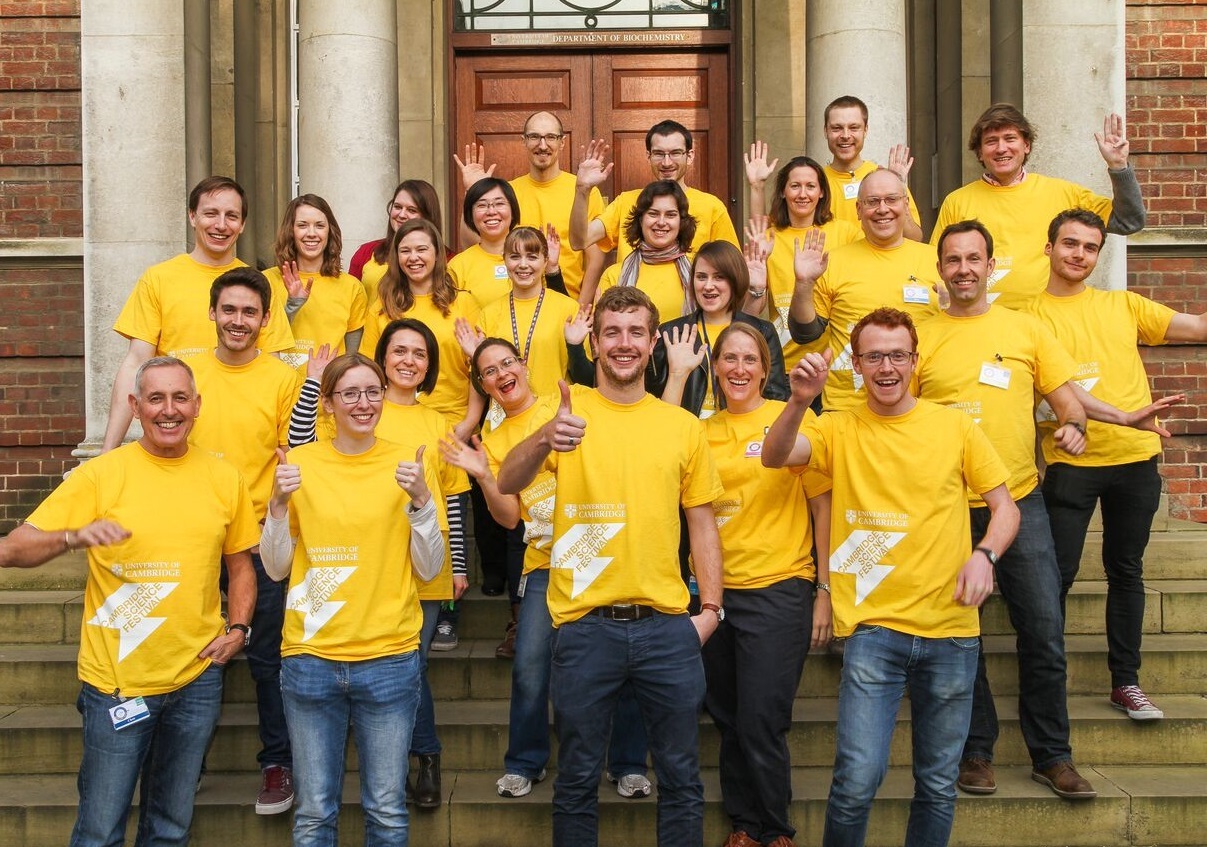Science Day 2016

The Cambridge Science Festival is held each year during a two-week period in March. This Festival provides the public with opportunities to explore and discuss Science through talks, demonstrations, hands-on activities, film viewings and debates.
Science Day 2016
Science Festival Theme: Data and Knowledge
Department of Biochemistry Theme: Structural Data and Molecular Design

Our 2016 Event was held on Saturday 12th March and was hosted by Marko Hyvönen and Florian Hollfelder. This was themed around the title of ‘Structural Data and Molecular Design’ where visitors of all ages could participate in hands-on activities such as:
- Arts and Crafts
Visitors could decorate their own proteins using a range of art supplies.
- Designing a Drug Molecule
Coloured carbon, oxygen and nitrogen atoms and models of drug molecules bound to protein active sites were used to demonstrate molecular interaction (hydrophobic and hydrophilic) that drugs make when they bind to their target.
Visitors who collected three labels from the activities received their own kit for building drug molecules (coloured marshmellows, lollipop sticks and a template) at home”.
- Directed Evolution
Techniques for generating better enzymes were demonstrated in the form of games that allowed the visitors to separate different “molecules” from each other and select for the desired property. The games required good detection (eye sight) and fast reaction times to open the gates for selection of correctly coloured M&Ms.
- Paper Chromatography
The principles of chromatography (as used for purification of proteins - details below) were used by visitors to solve a crime mystery. With felt tips pens, some filter paper and water, we could determine which pen was used to write a ransom note in the recent bank robbery.
- Protein Production
Bacterial plates, liquid cultures and mammalian cells under a microscope helped the visitors to learn how we can harness the power of cells, with the help of DNA, to produce proteins for research purposes.
- Protein Purification
Proteins that are used for research or in biotechnology need to be purified. A state-of-the-art chromatography system was at hand to demonstrate how molecules can be separated based on their size and how we can detect them using invisible UV light. Some coloured molecules, like haemoglobin from blood and cytochrome C from muscle, were visible in the purification column. Pipe-cleaner models of proteins with different sticky “tags” were used to demonstrate affinity purification of proteins with Velcro strips, magnets and hooks as baits.
- Setting up Crystallisation Trials
Purified protein (lysozyme) were used to setup crystallisation trials to facilitate determination of three dimensional structures of proteins. Previously crystallised diamond-looking crystals were available and could be seen through a microscope.
- Translating DNA to Protein
All visitors were given a DNA sequence and with the help of a codon wheel they could translate the four letter genetic code into 20 amino acid protein code. Using small beads with letters and some string, the translated amino acid sequence was assembled into a polypeptide.
- X-Ray Data Collection and Determination of Protein Structures
The Department had live connection to Diamond synchrotron at Didcot and demonstrators helped visitors to control the instrument remotely, putting frozen crystals (at -173C!) into X-ray beam for data collection. Interactive graphics showed what the resulting electron density looked like. Visitors could also see 3D structures on a TV using stereo glasses.
There was also the opportunity to have a photo taken in a 'lab' - these black and white photos could be taken home along with items collected from other demonstrations during the Event.

Departmental Volunteers: Hannah Ambler, Dima Chirgadze, Tom Cotton, Alice Cuttriss, Caia Duncan, Steph Favrin, Gerhard Fischer, Thomas Fryer, Fabrice Gielen, Chris Green, Clare Henry, Tuomas Huovinen, Mairi Kilkenny, Rory Little, Miriam Llorian, Stephanie Low, Ben Luisi, Amy Marshall, Tom Mayle, Arun Pandurangan, Maya Petek, Neil Rzechorzek, Oana Sadiq, Yi Lei Tan, Liisa Van Vliet, Emma-Jane Whyles
